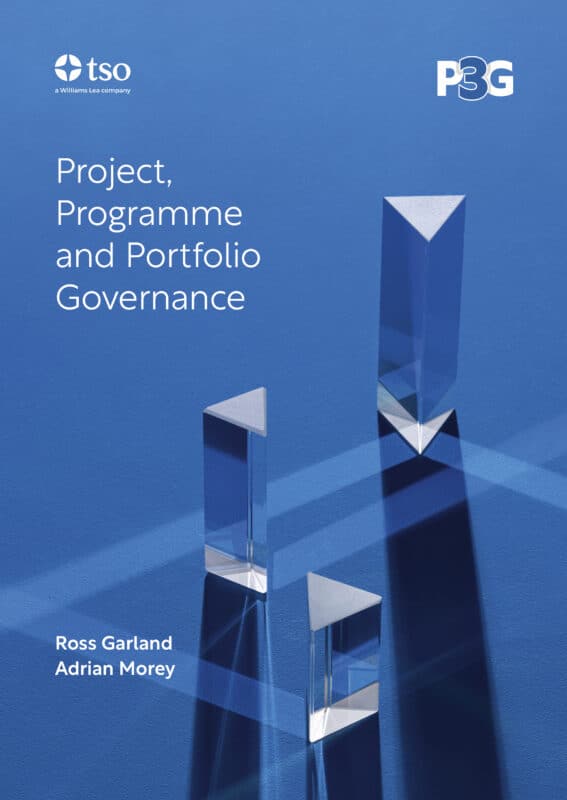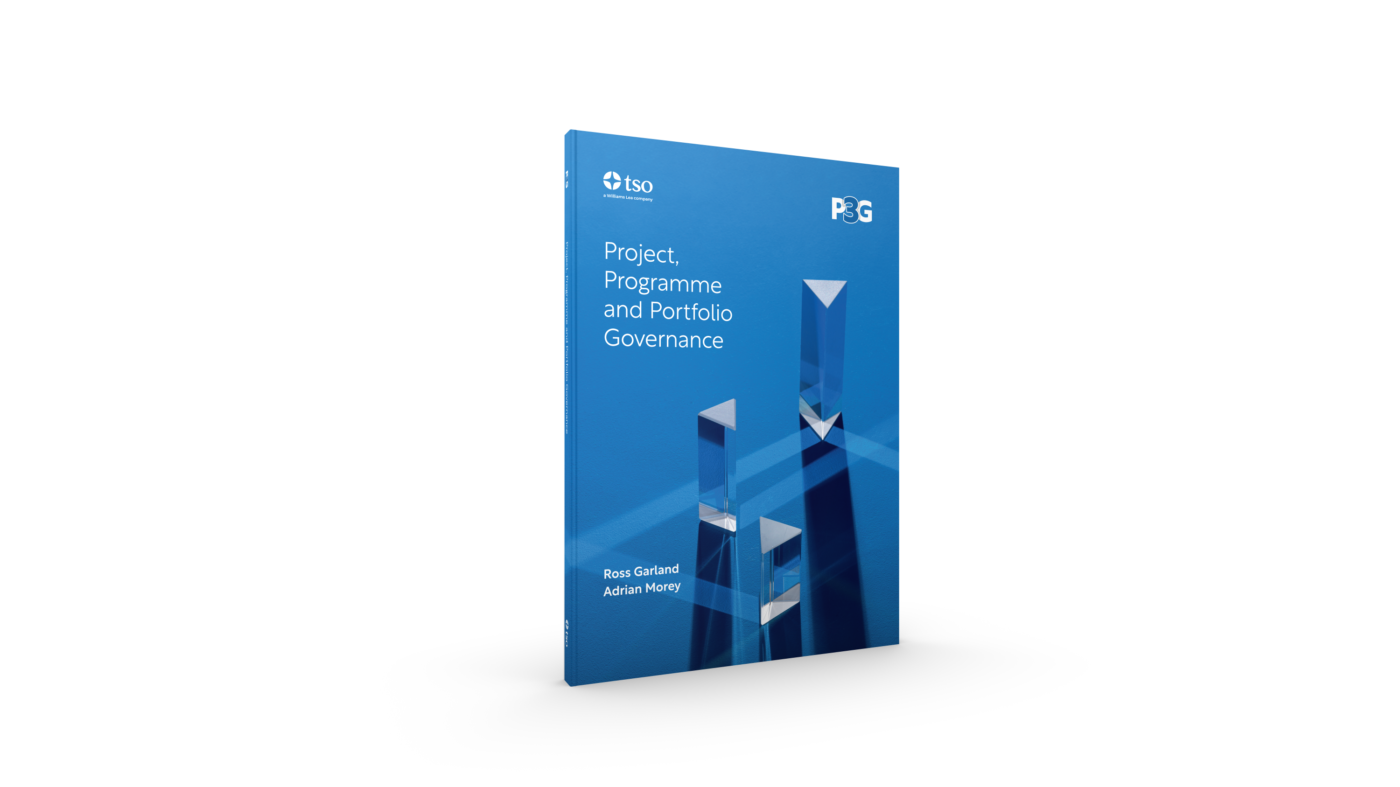
Project, Programme and Portfolio Governance (P3G)
Authors: Ross Garland and Adrian Morey
Publisher: TSO (The Stationery Office
The purpose of this guide is to provide the knowledge and understanding necessary to design, implement and operate effective and efficient governance arrangements for an organisation’s portfolio of projects and programmes.
It is a practitioner’s guide and so takes a practical approach. The guide is principles-based thereby allowing organisations and practitioners the flexibility necessary to address their specific circumstances. The principles are grounded in logic and practice and the guide explains both how and why they are applied. They are scalable and so are applicable from the smallest to the largest initiatives. It explains the critical importance of accountability and how to ensure consistency of decision making rights between the accountable roles. In doing so it addresses the integration of governance at all levels in the organisation.
It indicates how to establish an effective governance framework for a project, programme or entire portfolio. It is applicable to all sectors including hard infrastructure, Information and Communications Technology (ICT), and business change in both the public service and the private sector. It addresses traditional delivery methods as well as approaches such as agile and hybrid.
Key features:
-
Provides the knowledge and understanding necessary to design, implement and operate effective and efficient project, programme and portfolio governance arrangements
- Shows how governance can be adapted to the specific organizational and project/programme circumstances
- Applicable to all areas in both the public and private sectors
- Explains both the “how” and the “why”
- Grounded in logic and practice
- Practical, pragmatic, principles-based approach
-
Addresses both traditional and agile methods







 . These methods and frameworks do not provide a holistic overview of P3M and offer tools and techniques to be a good ‘manager’ or ‘leader’ in delivery, support, management, and control.
. These methods and frameworks do not provide a holistic overview of P3M and offer tools and techniques to be a good ‘manager’ or ‘leader’ in delivery, support, management, and control.


